Invited Keynote Lectures
Prof. Gerben Messelink
Laboratory of Entomology, Wageningen University & Research
Wageningen, the Netherlands
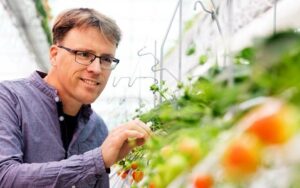
Preventive strategies for biological control of aphids in greenhouse crops
Professor Gerben Messelink is a researcher at Wageningen University & Research in the Netherlands, specializing in the biological control of greenhouse pests, particularly aphids and thrips. His research focuses on creating resilient greenhouse cropping systems through functional biodiversity and the long-term establishment of natural enemy populations. He works on evaluating generalist predators, supplemental food sources, banker plant systems, habitat manipulation, and the complexities of food webs to improve pest control strategies in greenhouse environments.
Prof. J.P. Michaud
Department of Entomology, Kansas State University
Hays, KS, USA
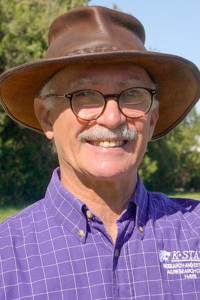
Reciprocal synergism between plant resistance traits and biological control of aphids on annual crops.
Dr. J.P. Michaud is Professor of Entomology at the Kansas State University, Agricultural Research Center-Hays, where he works to develop sustainable pest management strategies for economically important pests in central Kansas. Conservation biological control is considered to be the foundation of all IPM programs for pests affecting low value field crops. Other pest control tactics include elements of cultural control, host plant resistance, and the careful use of selective insecticides. His research interests include the ecology and behavior of predators and parasitoids, aphid-plant interactions, and non-target effects of pesticides. The Coccinellidae have been a particular focus of study, as lady beetles are among the most important biological control agents of aphids and other cereal pests in the region.
Dr. Alberto Urbaneja
Centro Protección Vegetal y Biotecnología, Instituto Valenciano de Investigaciones Agrarias (IVIA)
Moncada, Valencia, Spain
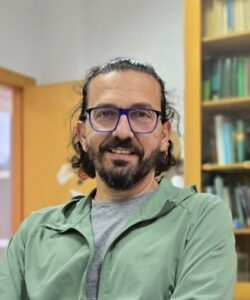
Advancements in plant-aphid interactions: exploring the role of induced defense signals for enhanced resistance
Research Professor of Entomology at Instituto Valenciano de Investigaciones Agrarias (IVIA), Spain. Throughout his career, he has addressed numerous key crop pests, consistently focusing on developing pest management programs prioritizing biological control. His research explores innovative strategies to enhance plant resilience by leveraging natural ecological interactions. Among the many pests he has worked on, aphids have been a central focus in recent years, as he investigates how their management can be improved by enhancing plant defense mechanisms in both horticultural and perennial crops. He has authored over 400 publications, including 182 in SCI-indexed journals, and has led 21 out of 42 research projects in which he has been involved. His commitment to knowledge transfer is reflected in numerous outreach activities and the 31 research contracts he has secured with agricultural companies. He has also fostered collaborations with public institutions to develop practical agricultural applications. In addition to his research, Alberto has supervised 18 doctoral theses, mentored postgraduate students and postdoctoral fellows, and hosted over 50 research internships. He has held editorial roles in scientific journals and contributed to scientific committees, evaluation commissions, and consultancy work for international organizations.
Dr. Jen White
Department of Entomology, University of Kentucky
Lexington, KY, USA
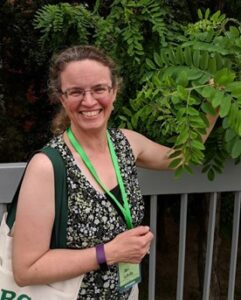
Aphidophagous communities respond to intraspecific variation in aphid defense
Dr. Jen White received her Ph.D. in Ecology, Evolution and Behavior from the University of Minnesota. After a postdoc at the University of Arizona, she has since been a faculty member at the University of Kentucky where she is currently a Professor of Entomology and Director of Undergraduate Studies for the Entomology program. Her research interests focus on arthropod interspecific interactions as mediated by microbial symbionts.
Prof. Kristopher Giles
Oklahoma State University
Stillwater, OK, USA
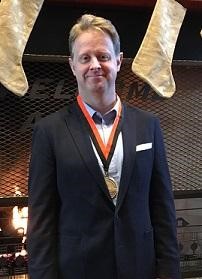
Disruption of biocontrol based IPM cereal systems in the US
Professor Giles has been a researcher and instructor at Oklahoma State University
since 1997. His general research areas include the ecology of arthropod pests and
natural enemies in cereal cropping systems and insect sampling. In particular, results
from each of these areas have been integrated to develop holistic management programs for aphids in small grains crops.
Prof. M. Angeles Marcos García
Research Institute CIBIO, University of Alicante
Alicate, Spain

Hoverflies as key players in integrated aphid control
Dr. M. Ángeles Marcos is Professor of Entomology at the University of Alicante. Her extensive research career, initiated with a PhD from the University of Salamanca focusing on hoverflies (Diptera: Syrphidae). Her extensive dedication to the study of this group of insects, has established her as a expert in the biology and ecological interactions. She has studied antagonistic (phytophagy) and mutualistic (pollination) syrphid-plant relationships in diverse Mediterranean, Tropical, and Desert ecosystems of Central America and Africa. More recently, Dr. Marcos’s research has centered on the critical role of predatory hoverfly species in integrated aphid control. She is a membership of the Expert Advisory Committee of the City of Arts and Sciences in Valencia and her appointment as a Research Associate in Natural Sciences at the National Museum of Scotland (Edinburgh, UK). She was a promoter and founder of the Spanish Entomological Association. Her innovative contributions are further highlighted by the prestigious Cavanilles Botanical Medal from the Scientific Athenaeum of Alicante. She is the founder and coordinator of the Associated Research Unit between the CIBIO research institute of the University of Alicante and the Institute of Agricultural Sciences of the CSIC (Spanish National Research Council) in Madrid. She is a co-inventor of the patent for the mass rearing of the aphidophagous hoverfly Sphaerophoria rueppellii and the founder of the spin-off company Bionostrum Pest Control S.L., showcasing her direct impact on the pest control industry.
Prof. Megha N. Parajulee
Texas A&M University
Lubbock, TX, USA

Aphidophagy in cotton agroecosystems: Cropping system diversification and conservation biological control for cotton aphid population suppression
Prof. Parajulee earned a Ph.D. in Entomology from the University of Wisconsin-Madison, USA, joined Texas A&M University in 1994 as a cotton entomologist, and has been serving as the Cotton Entomology Program Leader since 2001. Dr. Parajulee is a leader in cotton entomology and cropping systems research, teaching, and service, with 132 refereed and over 366 non-refereed publications, 170 invited and 340 submitted presentations, and 35 M.S./Ph.D. students mentored during his 30-year tenure at Texas A&M University. He has been active internationally with >45 plenary/keynote speaking roles in 15 countries and served as a Fulbright Senior Scholar in Nepal and Uzbekistan. Dr. Parajulee received the Texas A&M Vice Chancellor’s Award in Research Excellence, Faculty Fellow Award, Regents Fellow Award, Entomological Society of America Integrated Pest Management (IPM) Excellence Award, and US Department of Agriculture Southern Region IPM Hall of Fame Award.